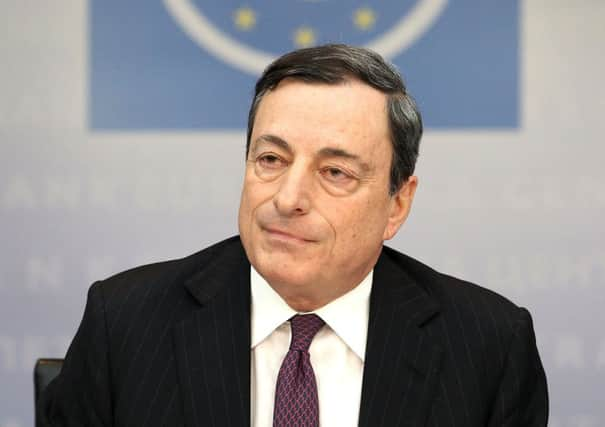Eurozone at risk from emerging market chaos - Draghi


Speaking after the bank’s decision to leave interest rates at their current record low for another month, he said the bank remained ready to act.
Risks to the currency bloc’s economy remain skewed to the downside, Draghi said, adding that inflation would be low for a protracted period.
Advertisement
Hide AdAdvertisement
Hide Ad“Developments in global money and financial market conditions and related uncertainties, notably in the emerging market economies, may have the potential to negatively affect economic conditions,” he said.
“The reason for [yesterday’s] decision not to act has really to do with the complexity of the situation… and the need to acquire more information.”
A sharp drop in eurozone inflation to 0.7 per cent in January, well below the ECB’s target of just under 2 per cent, would have focused policymakers’ minds, particularly since emerging turmoil could put further downward pressure on prices.
The ECB also left its main rate at 0.25 per cent, while the deposit rate for banks is at zero and its emergency borrowing rate was also held, at 0.75 per cent.
Draghi said further information and analysis will become available to the bank early next month, including the first forecasts for 2016.
The ECB is wary of inflation getting stuck in what Draghi has dubbed a “danger zone” below 1 per cent. The recent emerging market sell-off in currency markets risks forcing the euro higher, which would put more downward pressure on prices.
Meanwhile, the Bank of England’s monetary policy committee also opted to hold interest rates at a record low of 0.5 per cent, although that came as little surprise given its forward guidance on the subject.
In the UK, it is thought that interest rates are likely to move up rather than down, although most analysts believe that is unlikely to happen until next year at the earliest.